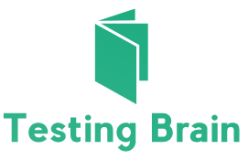A supervisor’s role is a leader’s role and hence questions which center on ability to manage and organise people to bring out their best will be asked during a Supervisor’s Interview Questions. While questions specific for supervisors will be asked, the regular Job Interview questions will also be expected. Supervisors are expected to possess Leadership … Continue reading Top Supervisor interview questions with answers that you must prepare for job
6 basic marketing interview questions with answers that you must prepare for your marketing job
When preparing for marketing job interview, be ready to hear questions that will test how smart and convincing you are and your ability to communicate clearly and persuasively. Ensure you prepare well to pass your interview convincingly because the interviewer wants to know if you have core features of strategic planning, creativity, ambition and patience … Continue reading 6 basic marketing interview questions with answers that you must prepare for your marketing job
Managers interview questions, knowledge requirements for a manager job
When companies want to hire a manager, they expect that such position would have some knowledge requirements. The knowledge requirements for a manager job will differ depending on the employer, scope and level of the manager job. Nevertheless, typical knowledge requirements for managerial jobs include: Management and business principles human resource management principles administrative procedures … Continue reading Managers interview questions, knowledge requirements for a manager job
Very common Legal interview questions & answers that should prepare for law job
If you are interviewing for law jobs, you’re likely wondering what type of questions you’ll be asked.It will reflect badly about you if you’re unwilling or unable to answer questions a job interviewer asks you and worse when it’s Legal Job Interview. Prior to your interview, research commonly asked Legal interview questions and get to … Continue reading Very common Legal interview questions & answers that should prepare for law job
Must prepared Leadership interview questions with hints to answer
When you go for a Leadership job interview the HR professional will be very curious to know the experience that makes you fit to lead, your accomplishments and your style of leadership. In preparation for interview questions on leadership, take note of the leadership qualities that are best fitting for the job that you would … Continue reading Must prepared Leadership interview questions with hints to answer
Top cunning Informational Interview Questions for jobseekers
An informational interview could be a very useful tool for a jobseeker. Informational interviews provide job seekers the opportunity to interact with someone in a field or industry they are interested in and determine whether they possess what is required to make their career successful in that industry. Typically, an Informational interview is not planned … Continue reading Top cunning Informational Interview Questions for jobseekers
Most expected HR round interview questions with answers
Landing a job happens as a result of successfully passing through a screening interview process. As a result, a bad or good interview with Human Resources professionals will determine how well an interviewee fares and their chances of getting the job. The following are what to expect and how to prepare for an HR round … Continue reading Most expected HR round interview questions with answers
Prepare for facing Consulting interview questions with answers
Consulting Interview Questions (also known as “case interview” questions) vary significantly from traditional Job interview questions. In a normal or behavioral interview, the Job interviewer would ask questions that are likely to start with “tell me about a time.” An instance is: “Tell me about a time you had a conflict with a team member … Continue reading Prepare for facing Consulting interview questions with answers
Top Behavioral interview questions with answers
Behavioral Interview Questions are likely to be encountered during a Job screening Interview. What are Behavioral Interview Questions and how are they different from Conventional Job Interview questions that we are used to? Behavioural Job Interview questions are questions that will seek very definite examples of experiences and skills that are directly related to the … Continue reading Top Behavioral interview questions with answers
Accounting interview questions with answers
The surest way to excel at job interviews is to adequately prepare, and the same rule applies to Accounting job interviews. The interview will comprise a series of questions peculiar to Accounting processes and general job interview questions, and it is expected of you to answer them excellently. Proper preparation will definitely help you ace … Continue reading Accounting interview questions with answers
